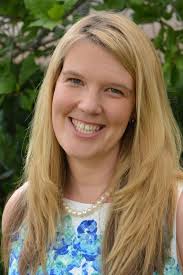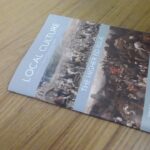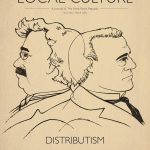
Claremont, CA. We at Front Porch Republic are concerned, broadly, with the role of place in American life. How do Americans think about the places we live and the spaces we inhabit? How might we think better about the where of where we are?
To really take those questions seriously, though, we have to consider the massive and increasing geographic segregation in American life.
Census data reveal that income inequality has been growing since 1968 and shows little sign of slowing; over 50 percent of American income in 2004 went to the top fifth of households, and the biggest gains went to the top of that group. The average CEO now takes home a paycheck 431 times that of their average worker. As Jonathan Chait has reported, over the last quarter century the portion of the national income going to the top one percent has doubled; the portion going to the top one-tenth of one percent has tripled; and the portion going to the top one-hundredth percent has quadrupled. Meanwhile, the wages of college graduates as a whole have dropped. America, as Peter Dreier and his co-authors have documented in their excellent book Place Matters, is becoming a class-bound society.
This monetary divide entails geographical division as well. Inequality among geographical regions in the United States has risen steadily since the 1980s. It’s not only that the richest people are getting richer; it’s the richest places, too. And even within regions — southern California, say — rich suburbs have become wealthier and other suburbs’ fortunes have declined. “Just as the gap between rich and poor widened at the individual level,” Dreier and company note, “it widened tremendously between suburban places.”
You can see this trend reflected, among other places, in that great bellwether of American life: teen cinema.
Start in the 1980s. Like most of my friends, I grew up sympathizing with Andie Walsh, Molly Ringwald’s character in what was for a long time the standard-bearer of teen cinema: John Hughes’s Pretty in Pink. In that movie, Andie is from the proverbial wrong side of the tracks, bent on captivating Blaine McDonnagh (played adorably by Andrew McCarthy). You remember how this goes: Blaine is rich and therefore popular, always hosting and attending keggers. Andie is not rich and therefore consigned to hanging out with other less-fortunate types. These types do not have parties, and they are never invited to partake of the lifestyles of the rich and popular. Thus, absent a cataclysmic revolution in the high-school order, Andie stands no chance with Blaine. Of course, it is just such a revolution that this film provides. The poor girl and the rich boy end up in each other’s arms at their prom, Andie proudly wearing her hand-sewn dress in a sea of designer labels. We learn in that film, so emblematic of storylines of that era, that classroom politics entail class politics. But in the end, everyone attends the same public school.
More recent teen popular culture has also focused on class, but with an important distinction: They are premised on the notion that rich kids and poor kids do not live in the same school districts, even if they live in the same region.
The hit show of the early 2000s, “The OC,” was in fact premised on the notion that poor kids and rich kids do not grow up in the same place. Ryan is poor and from Chino; the others are rich and from Newport Beach. By accident, Ryan ends up living with a Newport Beach family. Drama ensues, with lots of talk about where Ryan is from, and what that means.
All the show’s talk about where Ryan is “from” trades on the assumption that even a slight variation in geography — town, region, area code — is coeval with a great variation in socioeconomic class. Nobody in Newport is working-class, just as nobody in Chino is wealthy. In other words, Ryan is not just from a different city, but from what seems like a different planet. In just about every “OC” episode, the breathy Newport beauty Marissa Cooper explains her angst-ridden relationship with Ryan by sighing, “We’re just from different worlds.”
In the world of “The OC” a single digit in your area code makes all the difference: A 909 area code signifies that one lives in eastern Los Angeles or southwestern San Bernardino County. The area code for Newport Beach, in affluent Orange County, is 949. On the show, the characters from Newport Beach make much of the fact that Ryan is from “the 909.” Although Ryan’s hometown of Chino is only 40 miles from Newport, it’s literally long distance.
They are not merely different; the show suggests they are mutually exclusive. Many of the show’s most powerful scenes involve these worlds colliding: Chino kids, slack-jawed and uncomprehending, in Newport; Newport kids, tentative and uncomprehending, in Chino. And a recurrent theme is the near-impossibility of a Chino kid “surviving” in Newport, or vice versa. Only a remarkable set of events brings Ryan to Newport (A tough-but-caring public defender sees potential in the young juvenile offender and takes him home to his mansion on the sea) and the only adult characters who weren’t born into money married into it (the deceitful, gold digging Julie gets knocked up to get in, and once in she keeps marrying up). But nobody earns their way into Newport. This city, where no manual laborers need apply for residence, is a far cry from the small-town, apple-pie-bound streets of Pretty in Pink. “The OC” is both much leaner and much meaner.
In other words, as “The OC” (and other recent teen fare such as Bring It On, Gossip Girl, or Save the Last Dance) reflects, Americans are increasingly likely to live class-bound lives, in class-bound places.
This fact should strike fear into all of us committed to the idea of democratic government. For economic segregation strikes at the heart of the democratic project, undermining the social foundations on which a healthy citizenry depends.
Tocqueville understood this well. “All classes mingle together because they live so close together,” he observed. That intermingling, wrote Tocqueville, meant that no American considered himself a fundamental stranger to any other; poorer and richer people engaged each other every day. In communities where many classes lived and worked together, everyone could see their interdependence, the ways — immediate and long-term — in which their lives were linked. Thus, Tocqueville argued, Americans developed the sympathetic and interactive habits of mind necessary to sustain democratic rule.
Given that a certain amount of economic stratification is inevitable in a democracy, Tocqueville saw how the daily interaction among different classes does more than just mute class resentment. It points everyone, wealthy and not-so-wealthy, toward the idea that our different material standings are less important than our shared citizenship. Rich or poor, we all vote at the same polling stations — and we all end up at the same prom.
When that interaction wanes — when the rich and poor do not intermingle within the same community — the overriding relevance of citizenship as a category that defines who we are begins to crumble, and people in different classes stop seeing themselves as sharing things in common or having a common destiny. The overtones of this phenomenon in American political life are already evident. The oft-discussed red-blue divide may best be understood as a divide between those Americans who live in places closest to the centers of power and wealth (which stand to get only more powerful and wealthy) and those Americans who live in places far from centers of power and wealth (where weakness and insecurity are felt more intensely).
At some points, the writers of “The OC” almost seemed to lament this problem — and their characters’ economic parochialism. During the show’s third season, for instance, they inserted some middle-class people into the Newport Scene by sending Marissa to public school. (This happened, for those of you keeping track, because Marissa had been expelled from Harbor for shooting Ryan’s brother, Trey. Trey deserved shooting because had attempted to rape Marissa and was threatening to kill Ryan. Need I mention that Trey was from Chino, and didn’t make it in Newport?)
Marissa settles into public-school life, even getting flirty with a surfer named Johnny Harper. But just when you think that Marissa is about to embrace middle-class existence, the Harbor kids come together and convince the board to reinstate their prodigal daughter. Then, as the FOX website tells it, “a very happy Marissa joins the gang” for the Harbor class picture, and we know she is where she truly belongs.
Shortly thereafter, Johnny Harper dies, falling off a cliff after drinking too much tequila. Exeunt middle class.
The show’s not-so-implicit support for class segregation culminates at the end of Season Three, when Marissa is killed in a car accident caused by the drunk-driving of one Kevin Volchok.
Now, in the episodes prior to the fatal car accident, Volchok’s favorite pastime, besides drinking, is extorting and stealing money from the Newpsies. Needless to say, he is not a native. Marissa had been briefly involved with Volchok — “going slumming,” as a number of “The OC” fan sites put it. And Volchok had in fact been Marissa’s date to the Harbor prom. But rather than melting in her arms there a la a 1980s John Hughes movie, Volchok steals all the post-prom party money, drinks a flask’s worth of booze, and makes out with another girl.
With that storyline in the background, it’s hard not to watch Marissa’s death throes without thinking: Marissa never should have gotten involved with that Volchok. You knew he didn’t belong.
Maybe this is all you need to know: Throughout the run of “The OC,” no cross-class teenage romance survived.
W.E.B. Du Bois got it right when he predicted that the central problem for America, and American democracy, in the twentieth century would be the problem of the color line. What the recent turn in teen cinema indicates to us is that the central problem for twenty-first century American democracy is going to be the problem of the class line – and how those increasingly match municipal lines.
Still, as Walter Benn Michaels has recently and convincingly argued in “The Trouble With Diversity,” we have yet to recognize that fact. Americans are still self-congratulating about the battles of the last 100 years, he argues, celebrating our “diversity” while ignoring our inequality. We’re invested in the appearance of justice, rather than in the fact of injustice.
Twenty-something years ago, when Molly Ringwald donned her homemade dress, Newport Beach and Chino shared at least one thing that they no longer have in common: the area code 714. But now, as then, democratic citizenship depends on the notion of a common life, and on the kinds of connections that you cannot make long-distance.






8 comments
Sean S.
The interesting thing about the Pretty in Pink reference is that Molly Ringwald’s character WASN’T supposed to get the rich kid; in fact, she was supposed to end up with Duckie. John Hughes explored this alternative ending in a later film of his “Some Kind of Wonderful”.
But that’s no here no there. I think geographical segregation expands beyond merely one’s location or school outward to modes of transportation. Mass-transit is the refuge of the working poor, with it often serving no greater purpose than busing the poor to work into wealthier areas and then shipping them back out at the end of the shift. And the worse thing about is the bubble effect of driving a car everywhere from one destination to the next.
The question is to what extent will this be social engineering. Not unlike the desegregation of schools (which are still effectively segregated in many places), attempting to force or even prod individuals into a shared communal experience might engender a large amount of backlash, and the clarion call of socialism/communism/fascism and assorted nonsense. But its clear that public policy today favors the atomization of the individual, mostly I think in an unintentional manner, but it still pounds on nonetheless.
The Spokesrider
Three years ago at this time I was riding my bike on rural roads near Montgomery and Auburn, Alabama. This was on my very first foray into the south of any kind. It was all new and different to me. After a few days of looking at the countryside, it occurred to me that one of the things that was different was houses of all kinds along the roads. One house might be of someone fairly well off, the next one looked like poverty, the next one of middle-income, etc. all in random order one after another. I didn’t remember seeing many places like that in Michigan or elsewhere in the upper midwest. I was wondering if zoning ordinances tend to result in greater economic segregation up here.
Maybe what I saw was not a sufficient sample from which to be making such generalizations. In fact, after I started looking closer at this phenomenon, on my last day there I saw what looked like a gated community going up outside of Auburn.
Regardless of whether my generalizations were correct, it called my attention to the fact that I enjoyed the apparent economic diversity on those rural roads. And like you suggest, that can be healthier for democracy, too.
(Yeah, I did think about the racial issues in Alabama, too, and how race relations were in some ways a little different than back home.)
stefanie
I would think that as housing prices drop and foreclosures rise, the lower-middle-class, at least, would be able to buy property in formerly middle-class-only enclaves. The same might be said for those moving from the middle class into the upper middle class. But in general, America does tend to be pretty class-bound – at least on the way up. There is a lot of room to fall on the way down …
D.W. Sabin
Television has , in many instances become the “Place” that people reference their lives against. It is a vicarious agora where people dip into and out of television or radio talk shows and their advertised goods within the marketplace, thinking they have actually engaged within a culture when they have done nothing of the kind, at least in any meaningful way. Church, civic organizations or friendship continue to fulfill their roles as part of an authentic agora but they are encumbered by the Fiat Culture of our media inventions. Finding the fakery of television insufficient for the support of a vivid fantasy life that replaces the monotony of “reality”, we now have the internet artificial reality where people can concoct a computer generated identity and live animated and busy lives devoid of the pesky affairs of reality.
The increasing class disparity is facilitated by Television and it’s vicarious agora because those who are increasingly marginalized continue to think they are part of a culture broadcasted on the airwaves. Personal craftsmanship, personal participation in an economy, personal participation in agriculture….personal participation across a broad spectrum of the constituent parts of a culture is subsumed by the vicarious agora and the give and take of a Republic erodes. One of the few productive reasons to watch television, or what passes as Television “journalism” is to monitor Conventional Wisdom to help one assemble a partial hold on reality by identifying the opposite of what is propounded as truth or writ on the little screen that has grown big as life.
Of course, like the larger culture, not all of television or the media is subversive of civilization , just the great majority of it. In Watching We Trust. Ennui is the spirit of the age. Paranoia insidiously gestates because a sentient being knows insentience when it sees it. This is one of the many reasons that Fear is surrendering to authoritarianism at such a rapid clip. The Skinner Box has High Production Values.
Edward
Perhaps this is something that was waiting to happen for many years now. Obviously, all human societies have made distinctions based on background determinants such as class and birth. This stratification, then, cannot be ideologically pounded out of human nature. A problem with this, though, is that this process has happened despite the democratic instinct of modern man and therefore will be tainted with modern liberal underpinnings. In other words, our social stratification might be just as distorted as the idea of a classless society.
Tim A
The “area code metaphor” emerged fascinatingly from the 2002 Eminem film 8 Mile. The climactic rap tournament turns on the “white trash” Rabbit’s success in framing his “ghetto thug” opponent Papa Doc as part of the “248,” while earning for himself the thundrous embrace of the black “313” audience.
The crowd cast aside Papa Doc as the son of a prosperous two-parent family, educated at the prestigious Cranbrook Academy in wealthy Oakland County (the 248). 8 Mile Road serves as the “tracks” that separate the white 248 to the north from the black 313 of the city of Detroit.
Sadly, the movie didn’t futher explore the added complexity as one moves further east along 8 Mile–the 586 of Macomb County, the white working class home from which Eminem emerged. The class issue was dramatically condensed to Black/White, with the border porous (negro Papa Doc is now 248 White, caucasian Rabbit is now 313 Black). But is 586 Macomb County (working class White America) really closer to 313 Detroit (working class Black) or to 248 Oakland (ruling class White)?
Perhaps Eminem and Curtis Hanson will sort it out next time.
Patrick Ford
Thank you for your reflections, Prof. McWilliams.
Perhaps you could take a moment to clarify what you see as the problem.
In places, it seems your critique is directed against economic stratification per se as a threat to healthy democracy. I’m not sure there would be sufficient evidence to back up that claim (and I don’t think this is your claim, though I’m not entirely sure–hence the request for clarification). It is not immediately obvious that the presence of clearly distinguishable economic classes is harmful to a community–cf. the charming symbiosis of this traditional English village (all three links cover the same story, but all are brief and each has different tidbits that help paint the picture):
http://news.yahoo.com/s/nm/20090316/od_nm/us_britain_village
http://www.msnbc.msn.com/id/29757970/
http://news.bbc.co.uk/2/hi/uk_news/7949319.stm
I think, though, that your main argument is not against economic stratification per se, but against the communal segregation that often results from this stratification, especially in America. Hence:
“Given that a certain amount of economic stratification is inevitable in a democracy, Tocqueville saw how the daily interaction among different classes does more than just mute class resentment. It points everyone, wealthy and not-so-wealthy, toward the idea that our different material standings are less important than our shared citizenship. Rich or poor, we all vote at the same polling stations — and we all end up at the same prom.” Or the same harvest celebration, as the case may be; as with Pretty in Pink, in the above story of the English village, the shared citizenship goes much deeper than equal suffrage.
Have I interpreted your piece correctly?
(Let me be clear that my comment should not be interpreted as a call for return to an aristocratic communal model. There are few places left in the Western world where such a model could work anymore, and America certainly isn’t one of them.)
Bill
Fantastic piece. Perhaps the metaphor of area codes should be further explained to show that the sprawling suburban development without regard to smart growth or public spaces is one of the main causes of today’s growing sense of alienation and dislocation. The obvious outgrowth of which is more developments to shelter ourselves from a disturbingly and ever-increasingly barbarous class struggle.
Comments are closed.